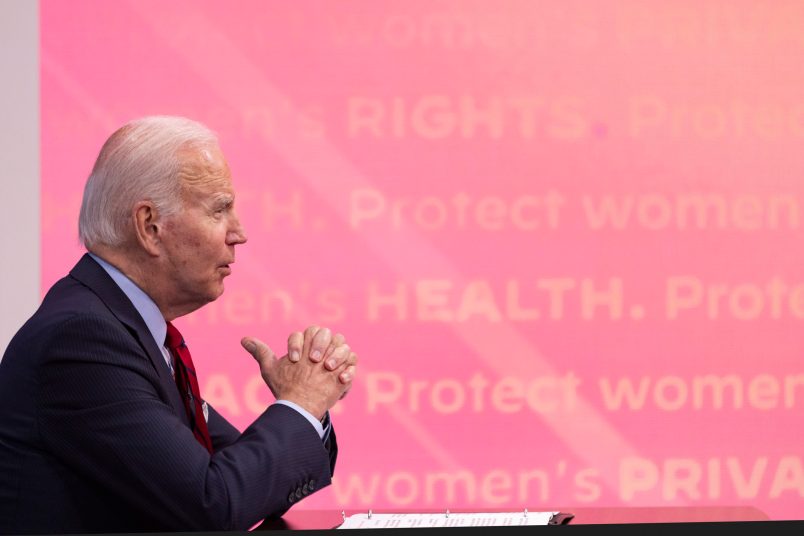A federal judge in Texas blocked Biden administration guidance that reminded physicians of what the government interprets as their obligation to perform abortions during medical emergencies, even in states where the procedure is banned entirely.
Judge James Wesley Hendrix, a Trump appointee, issued a preliminary injunction on the guidance being enforced in Texas, or against two groups of anti-abortion physicians nationwide.
While the decision is preliminary and likely to be appealed, it’s an early blow against one of the few measures the administration has taken to lessen the harm to women’s health that the Dobbs ruling is already causing.
Health and Human Services Secretary Xavier Becerra sent a letter outlining the administration’s position in July, shortly after the Supreme Court overturned the constitutional right to an abortion.
Hendrix ruled that the HHS guidance went further than the statute on which it relied: the Emergency Medical Treatment and Labor Act (EMTALA).
“That Guidance goes well beyond EMTALA’s text, which protects both mothers and unborn children, is silent as to abortion, and preempts state law only when the two directly conflict,” Hendrix writes.
Siding with the two groups of anti-abortion physicians as well as the state of Texas, Hendrix writes that the HHS guidance requiring physicians to act when the woman’s health is at risk is too generous.
“The Guidance states that EMTALA may require an abortion when the health of the pregnant woman is in serious jeopardy,” he says. “Texas law, on the other hand, limits abortions to when the medical condition is life-threatening, and HLPA goes further to expressly limit the condition to a physical condition,” he adds, referring to Texas’ trigger law that outlaws abortions in most cases.
He argues that the guidance also does away with consideration for the embryo or fetus. The government contends that, when the wellbeing of the woman and embryo or fetus are in conflict, it should be the pregnant patient who decides whether or not to go forth with an abortion. Hendrix says that the decision should be taken out of the woman’s hands and put into the doctor’s — who has to then comply with state law.
He also dips into agency power arguments to hack back the guidance, claiming that Congress has not resolved the specific question at play.
“Specifically, the question at issue here is whether Congress has directly addressed whether physicians must perform abortions when they believe that it would resolve a pregnant woman’s emergency medical condition, irrespective of the unborn child’s health and state law,” he writes. “Congress has not.”
Increasingly radical anti-administrative state arguments have been growing in popularity in the rightwing legal world, with some subscribing to the nondelegation doctrine — the idea that Congress cannot delegate its legislative power to agencies, which can be interpreted at the extreme that agencies cannot make rules at all.
The Department of Justice recently sued the state of Idaho over its anti-abortion law, basing its argument on an interpretation of EMTALA in line with HHS’. A ruling in that case is expected later Wednesday, per Reuters.
Read the ruling here:



